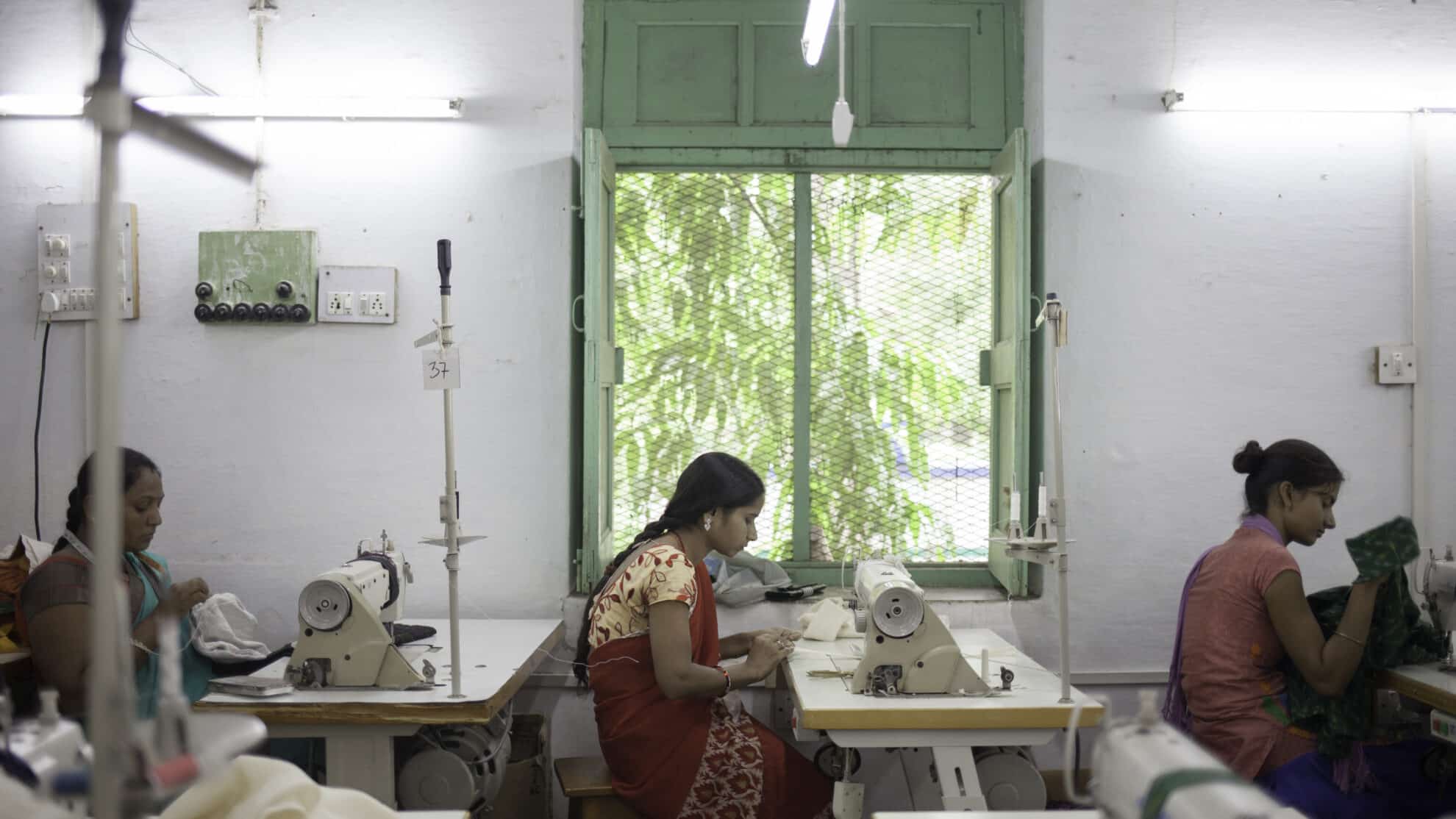Homeworkers, their organizations and allies celebrated a year ago when the European Union (EU) adopted a directive mandating European countries to adopt due diligence legislation covering workers in all tiers of a company’s supply chain, including subcontracted homeworkers, who work in workshops and from home.
But the relief was short-lived. Seven months later, in February 2025, the European Commission introduced an omnibus “simplification package”. This backtracking by the EU from its commitment to protect labour rights, human rights and the environment – by promoting responsible corporate behaviour in supply chains – puts garment workers at risk worldwide.
The Commission’s proposal is now undergoing review by the European Parliament and the Council of the EU. Trilogue negotiations between the three bodies will then commence. The final vote on the package may not take place until mid-2026. In the meantime, the European Parliament has stopped the clock on implementation of the Corporate Sustainability Due Diligence Directive (CSDDD). The requirement that EU members transpose it into national law has been postponed until July 2027.
CSDDD represents a major win
The International Labour Organization (ILO) estimates that, globally, there are at least 49 million subcontracted homeworkers, most of whom are women. Contracted by factories, or indirectly through intermediaries, homeworkers are on the lowest rungs of the supply chain. They earn the least, have the most precarious work and are least likely to have their fundamental labour rights respected.
The CSDDD covers all workers within a company’s chain of activities. It includes the company’s “indirect business partners”, whose work is related to the operations, products or services of the company. This is particularly important in the garment and footwear sector, where the first tier of factories subcontract to indirect business partners, who in turn subcontract to workshops and homeworkers who work from their homes. Suppliers subcontract tasks to reduce production costs; to meet fluctuations in the demand for labour; and, because homeworkers are often excluded from the scope of labour laws, to avoid paying minimum wages and contributing to social protection.
Among the reasons we welcomed the CSDDD were that it includes meaningful stakeholder engagement with stakeholders in all tiers of the supply chain. It also includes a broad definition of stakeholders to ensure that companies can flexibly engage with the most relevant persons and groups, including civil society organizations. Engagement with homeworkers would reduce companies’ risks of rights violations in their supply chains and assist companies to meet their due diligence obligations.
Watering down will leave much of the workforce unprotected
The omnibus package threatens to water down this protection of the rights of homeworkers. Instead of a risk-based approach for the whole supply chain, its scope is limited to direct business partners, that is to say, partners that are based in “tier 1” of their “chain of activities”. Companies would only have to go beyond their direct business partners when they have “plausible information” that adverse impacts on human rights or the environment are likely to occur within the context of an indirect business relationship.
In the garment and footwear sector – a high-risk sector for human rights violations – much of the workforce would not be covered. ILO statistics on this sector show that a third of workers – mostly women – in India, Pakistan and Indonesia work outside of factories, in or near their homes. Homeworkers who are contracted directly by factory supervisors or by workshops to work from home, earn between half and a third of the minimum wage. They also carry production costs, including electricity and equipment such as sewing machines and scissors.
As we stressed in an open letter to the European Commission, if the omnibus proposal succeeds and the CSDDD applies only to select categories of workers, suppliers are likely to informalize the workforce – maintaining one factory that complies with codes and subcontracting to other factories that are not audited and are non-compliant. European businesses and academics have also issued strong rebukes of the omnibus package – on both the substantive and procedural grounds.
Strengthening due diligence is a must
The omnibus package is still in early stages of development. For changes to take effect, broad support from the EU’s 27 member countries is required – and the legislative process is long and complex. Its provisions are not without controversy and may change as negotiations progress.
While this process plays out, it’s critical that stakeholders – across governments, corporations, investors, worker organizations, and civil society – continue their efforts to strengthen due diligence, in line with the international standards that underpin the CSDDD. As emphasized by Shift, a lot is already known about what it takes to implement due diligence well – in ways that are both workable for business and beneficial for people and planet.
In doing so, they should draw on the Organisation for Economic Co-operation and Development (OECD) Due Diligence Guidance for Responsible Supply Chains in the Garment and Footwear Sector. OECD countries have led the way in how to contract responsibly with homeworkers. Module 12 of the Guidance states that: “Homeworkers should be viewed as an intrinsic part of the workforce entitled to receive equal treatment and therefore should be formalized in order to achieve good terms and conditions of employment.”
